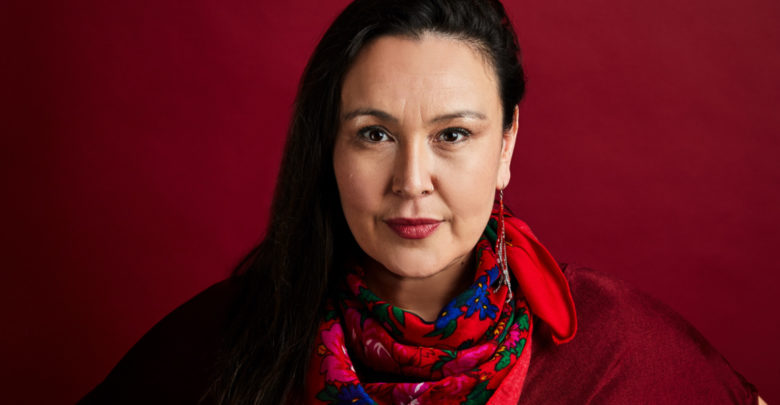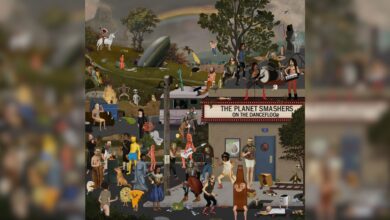Leela Gilday returns to the music scene with new album
Leela Gilday, a Dene singer-songwriter, has released her most intimate album to date
 Supplied by Jen Squires
Supplied by Jen SquiresAfter a five year break, Leela Gilday, a Dene singer-songwriter, returns to the music scene with her latest album North Star Calling. Born and raised in Yellowknife, Leela Gilday has a career spanning 20 years and has been awarded a Juno, two Western Canadian Music Awards, Aboriginal Female Entertainer of the Year and many more.
Combining Indigenous language, her own experiences and social issues (such as suicide and racism) with folk music, North Star Calling is Gilday’s most intimate and personal of all her albums.
“I completely believe art is healing. For me, singing is medicine, especially expressing the messages I want to express with my songs,” she said. “It’s healing because it takes me directly into the moment and makes me at one with my body, my voice
Gilday grew up around folk music and traditional Dene music, as her father was a music teacher and a musician. Although she wasn’t raised on opera, Gilday’s passion for music led to her studying opera at the University of Alberta.
“I started taking the conservatory lessons in grade 10 so that I could learn songs from that canon and start to mold my voice into a classical expression,” she said. “That’s because I wanted to be in music school. I wanted to spend that time studying music and building my chops up. It was really [about] increasing my modes of expression to go to opera school.”
During her time at the University of Alberta, Gilday enjoyed being around talented artists and being immersed in music, often spending hours a day in the practice rooms.
Nowadays, you can find Gilday touring and collaborating with many well-known artists. To name a few, she has toured with Babes for Breasts, Dead NDNs, Christine Fellows, Jason Burnstick and has collaborated with Tanya Tagaq, Diyet, Nive Nielsen, Sylvia Cloutier, Digging Roots, and Rick Fines.
“[Community] most definitely impacts my songwriting. I’m involved in several different communities as we all are,” Gilday
For Gilday, whenever she’s writing a song or performing on stage, she holds the communities she belongs to in her mind and also thinks about who she’s representing.
“It’s never just me on stage,” Gilday said. “When I step up on to the stage… I’m representing my community. I [can feel] my ancestors and grandmothers there on stage with me, singing with me.”
According to Gilday, she feels compelled to help her community in as many ways as possible. This lead to her doing some work in putting together healthy living fares with the Indigenous Health and Community Wellness.
“For First Nations people, our outcomes are much different than non-Indigenous people, and they’re not good,” she said. “There’s a lot of things that impact upon First Nations health that go back a long way, [like] colonial trauma or systemic racism.”
“These are my family members, these are my community members that have these experiences,” Gilday said. “It was important to me to work towards building community wellness.”
Gilday even does empowerment through her own music as well. For Gilday, the messaging within her songs are about people’s connection to the land and how we should help preserve our water and land for future generations. Additionally, her music carries messages about mental illness.
“We’re all impacted, not just Indigenous peoples, by mental illness. We all know someone, or love someone, or are someone who experiences mental illness. I do what I can to start those conversations, increase awareness and reduce stigma,” Gilday said.
Gilday believes any form of self-expression, whether you’re a performing artist or not, will help you better understand yourself, especially for young people.
“I think [being in touch with your feelings] is the start of healing,” she said.




